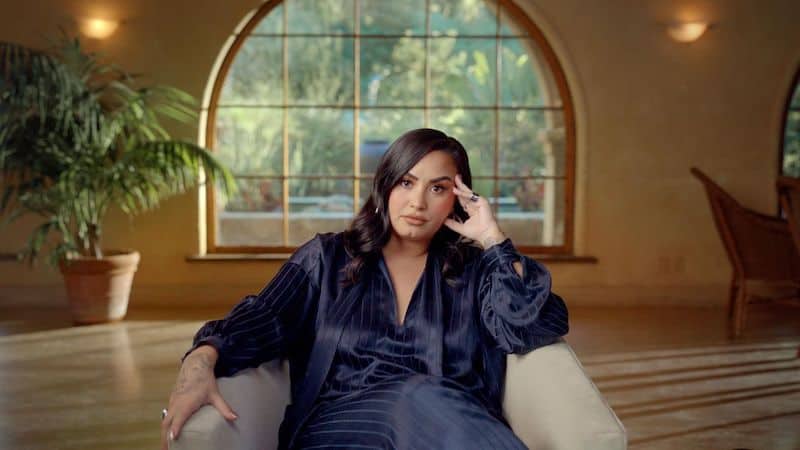‘Demi Lovato: Dancing With the Devil’ Loses Its Voice
In her new YouTube documentary, Demi Lovato has to compete with others who are also intent on telling her story for her.

“I’ve had so much I’ve wanted to say over the last two years,” Demi Lovato declares at the start of her documentary Demi Lovato: Dancing with the Devil, “to set the record straight about what it was that happened.”
That statement sets the stage for what’s to come in the film, which explores the life of the twenty-eight-year-old pop star in the aftermath of her 2018 drug overdose. Picking up some of the pieces from a previously attempted film project that was scrapped while Lovato was in the throes of addiction, Dancing with the Devil details that struggle in-depth and in a public setting for the first time.
Looking directly into the camera, Lovato addresses the film’s audience and tells of how her stifling experience with fame led to a tipping point. Now, with this documentary, she’s ready to finally reclaim the narrative about her addiction — a narrative that she never really thought of as her own because her celebrity status, which began at a very early age, came with the price tag of constant surveillance and control.
Among those helping her to tell the story are Lovato’s best friend, Matthew Scott Montgomery, her sisters Madison De La Garza and Dallas Lovato, mom Dianna De La Garza, and step-father Eddie De La Garza, plus some fellow celebrities, including Elton John and Christina Aguilera. Also placed in the mix, in a nonchalant manner, is the infamous, controversial Scooter Braun, who took on the role of her manager following her overdose. It should be noted, too, that Braun is an executive producer on the film.
When compared to the 2020 Taylor Swift documentary Miss Americana, which is a film with a similar subject and goal (albeit not one dealing with addiction), Dancing with the Devil has an unsettling tone. Both are about heavily scrutinized female music icons making an effort to reclaim themselves, but where Swift is the narrator of her documentary, Lovato’s story is filtered heavily through the voices of others.
And the involvement of Braun, who is known to, literally, control his subjects and their narratives, casts a dark shadow. Therefore, it’s difficult to wholeheartedly believe that Dancing with the Devil really accomplishes exactly what it sets out to be, which is a raw, transparent, authentic documentary about a person’s struggles.
Indeed, Lovato’s voice gets lost among other people’s interpretations of her experience. There are a few moments when this really comes to the surface, such as with her mother’s suggestion that she has been on the right track since her overdose. Lovato later admits that that incident was not the last time she touched drugs and that she isn’t even entirely sober now.
Her voice also gets lost in the sterile, formulaic style of Dancing with the Devil, which neatly packages together a series of mostly positive interviews. The film ends in broad strokes with vague claims about addiction and the path to recovery (like the cliched “I’m taking things one day at a time”) that don’t really mean much to Lovato’s specific journey. This ultimately makes it feel less like a pour-your-heart-out, tell-all documentary, and more like a safe and straightforward star profile.
That’s not to say Dancing with the Devil is without some powerful moments. Lovato urges that people stop micro-managing young women in showbusiness, as that usually leads to insecurity and self-destruction. She also calls for the undoing of the stigma surrounding discussions of mental health and pushes for a culture where people are comfortable being open about their struggles.
Such issues are important, of course, especially for a celebrity whom so many fans look up to. The people in Lovato’s life also seem to be genuine and are clearly speaking from the heart when it comes to their love for her. What is difficult to reconcile, however, is the tension between Lovato’s insistence to be the narrator of her own story, and, in reality, being just one voice among many. The result is a documentary that is at odds with itself.
Demi Lovato: Dancing with the Devil releases on YouTube on March 23, 2021.
